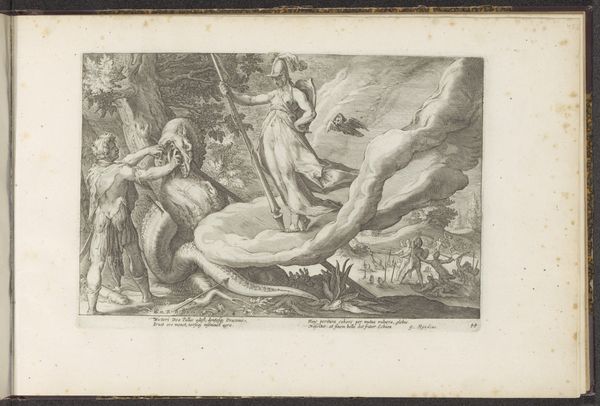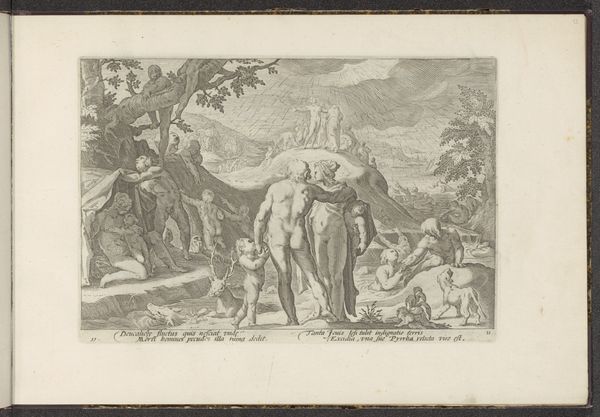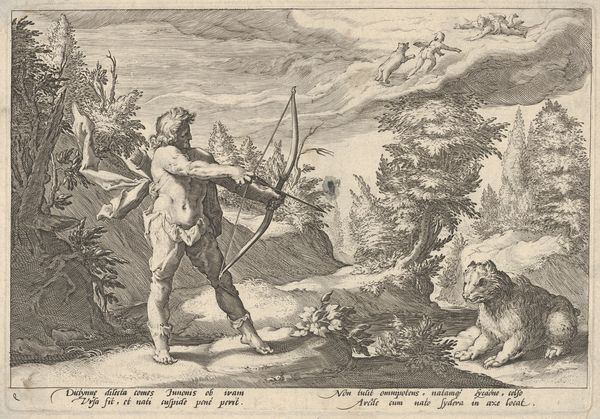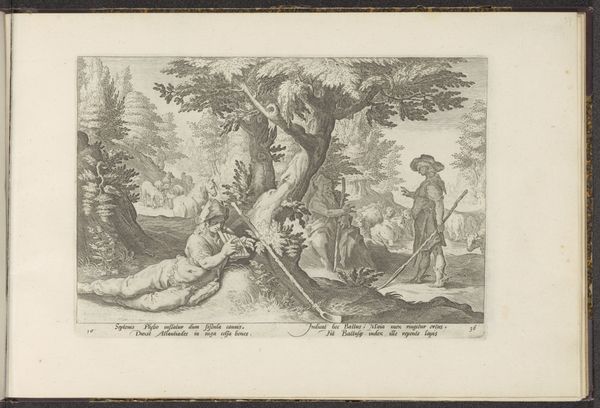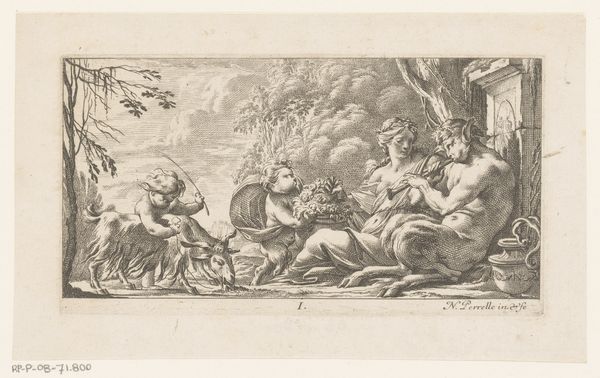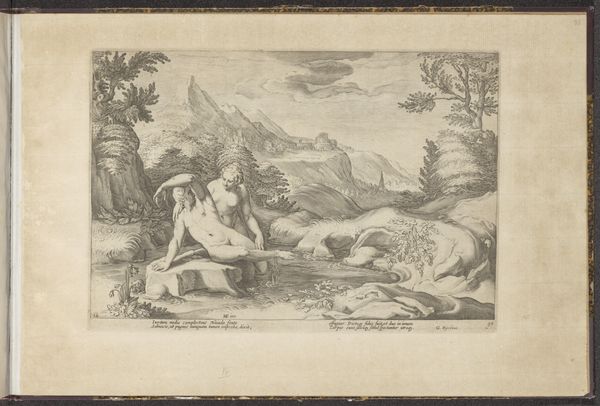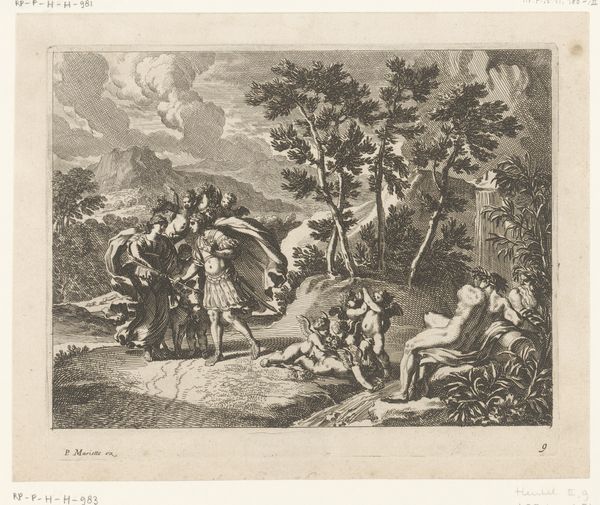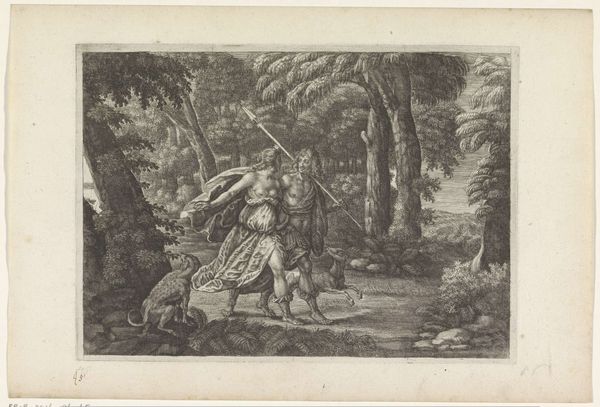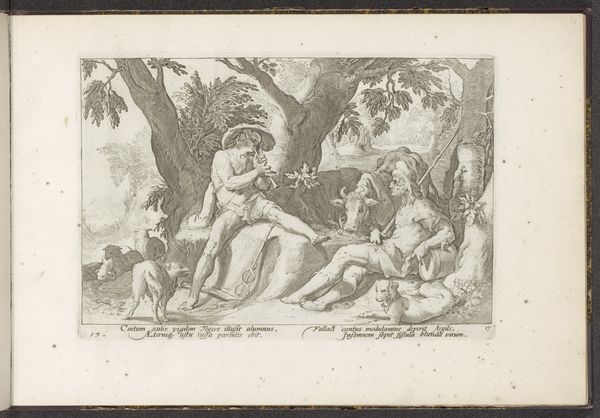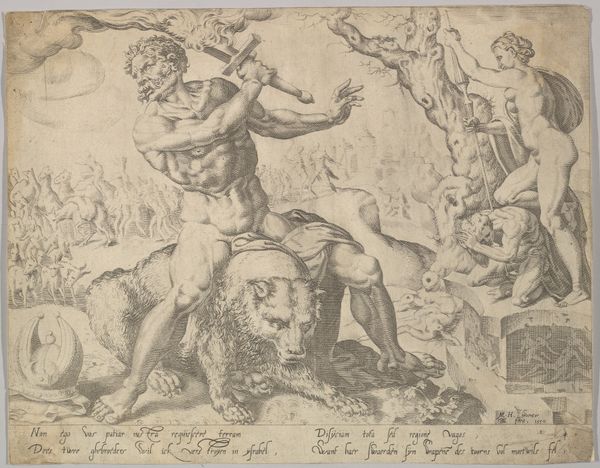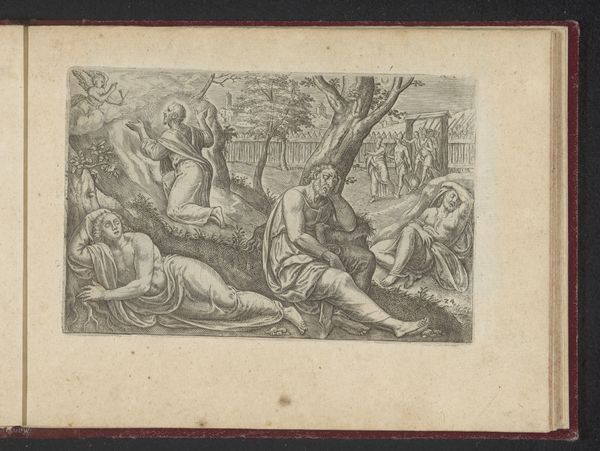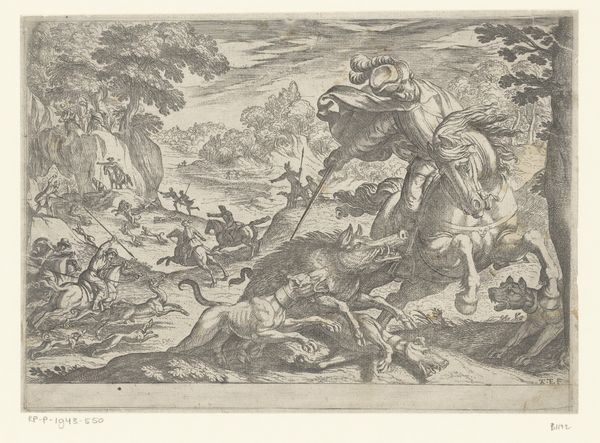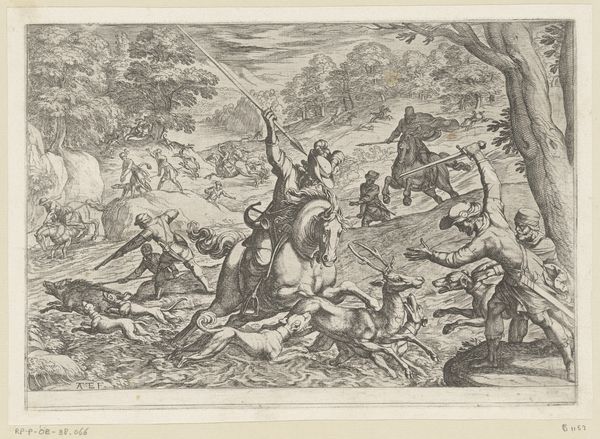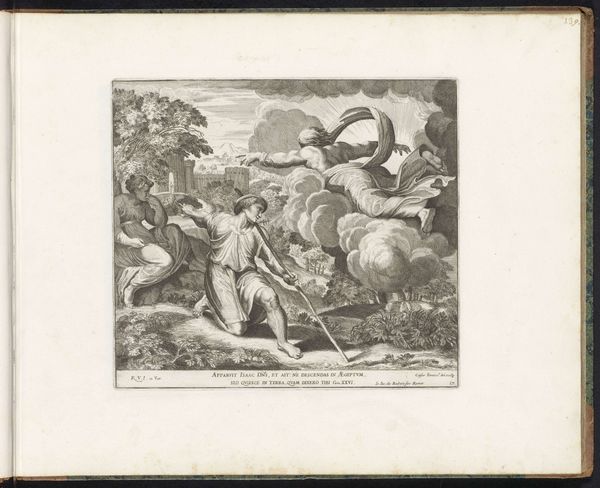
print, engraving
#
baroque
# print
#
landscape
#
figuration
#
line
#
history-painting
#
engraving
Dimensions: height 174 mm, width 255 mm
Copyright: Rijks Museum: Open Domain
Hendrick Goltzius made this engraving, Arcas richt zijn pijl op Callisto, using the reductive process of carving lines into a copper plate. The incised lines hold ink which is then transferred to paper. Look closely to appreciate how the varying depth and density of these lines create light, shadow, and texture. This requires not only technical mastery but also a deep understanding of visual storytelling. Engraving has a long and complex history. It was initially used for functional purposes like printing texts, maps and patterns, before evolving into a medium for artistic expression in its own right. Goltzius was a virtuoso engraver, and his prints were highly sought after by collectors. The level of detail he achieves, from the musculature of Arcas to the fur of Callisto in bear form, testifies to his skill and understanding of the material. Consider the labor involved in creating such a detailed image by hand, versus the relative ease of producing a digital image today. This speaks to the value placed on skilled craftsmanship in Goltzius' time, as well as the complex social and economic context in which prints were created and consumed.
Comments
No comments
Be the first to comment and join the conversation on the ultimate creative platform.
